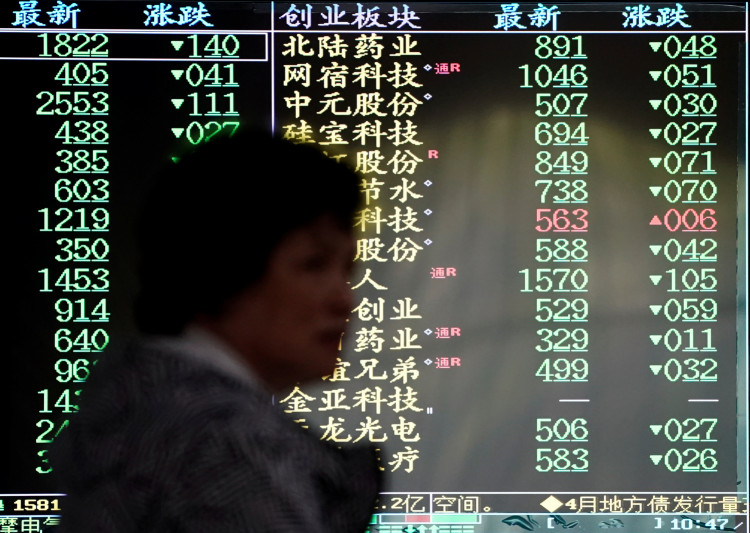Global stock prices plummeted Monday after the United States and China imposed new tariffs on each other's exports on Sept. 1, stoking investors' fears a global recession is now all but inevitable by 2020 at the earliest.
Wall Street is expected to reflect the same dour mood when it opens Tuesday after the Labor Day holiday Monday. U.S. equity futures have plunged ahead of Tuesday's opening, with the S&P 500 futures losing 1% before later staging a small recovery.
Stocks throughout Asia fell after the new tariffs took effect and data confirmed further weakness in China's stalled manufacturing sector. China revealed a drop in its official purchasing managers' index (PMI) on Saturday due to weaker demand for its products in the U.S. and globally.
Markets in Japan and Hong Kong saw stock prices drop in early trading. Japan's Nikkei N225 lost 0.28%. The MIAPJ0000PUS, MSCI's broadest index of Asia-Pacific shares outside Japan, dropped 0.3%. The decline was led by a 0.5% drop in Hong Kong's Hang Seng after the 13th weekend of anti-government protests, which have become increasingly violent and are opening the door to intervention by mainland China.
Shares at the Shenzhen and Shanghai stock exchanges saw heartening results, with the CSI300 index rising 0.3% despite the escalation by the U.S. and China of their year-long trade war that shows no signs of easing.
As for currencies, the yuan lost some value again while the yen moved higher. The dollar dipped slightly against the yen to 106.12 yen. The euro remained almost flat at $1.09905, a short distance from the two-year low of $1.0963 on Friday.
The latest escalation in Trump's trade war against China took place even as investors continue to reel from a tumultuous August where U.S. Treasury yields collapsed while global equities continued their descent.
President Donald Trump imposed 15% tariffs on a wide range of Chinese goods on Sunday while China imposed new duties on U.S. crude. This was the latest escalation in a drawn-out trade war Trump insists the U.S. is winning.
Studies concur Trump's tariffs will cost each U.S. household up to $1,000 a year in additional expenses. The latest round implemented Sunday will affect a large number of U.S. consumer goods.
In retaliation, China imposed additional tariffs on some of U.S. exports on a $75 billion target list. China didn't specify the value of the goods that will pay the higher tariffs, however.






